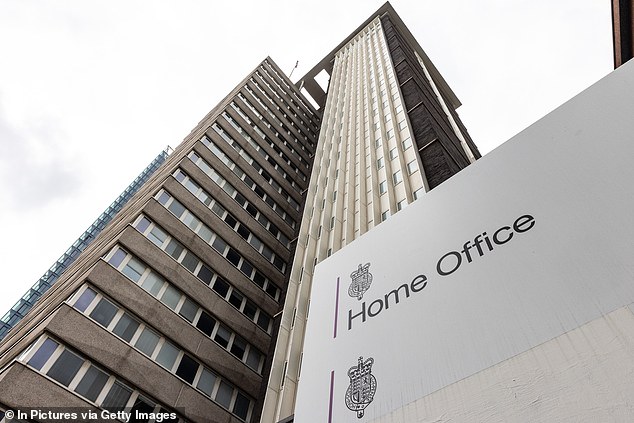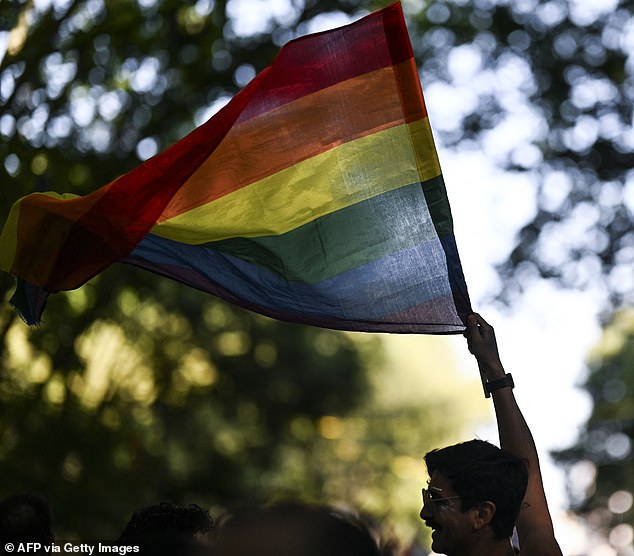A convicted Algerian burglar and robber has avoided deportation from Britain after claiming he is gay and transgender, despite racking up a shocking string of convictions and jail time.
The 27-year-old, who cannot be named for legal reasons, was granted asylum in the UK in 2013 and given leave to remain for five years. But just months later, he began committing crimes across the country.
Between April 2014 and January 2015, he was convicted of burglary, attempted burglary, threatening behaviour and theft.
Yet instead of being removed, he was handed a warning letter by the Home Office in May 2015.
That did little to deter him. From May 2016 to June 2018, he amassed eight more convictions, including multiple theft offences.
In September 2018, he was issued a second warning after committing a hate crime, and received yet another warning letter the following year.
His criminality escalated in 2020, when he was jailed for four years and three months after being convicted of assault, robbery and breaching a criminal behaviour order.
A fresh deportation order was signed three years ago, and his refugee status was officially revoked by the Home Office.

The 27-year-old, who cannot be named for legal reasons, was granted asylum in the UK in 2013 and given leave to remain for five years. But just months later, he began committing crimes across the country
But despite his repeated brushes with the law, he has now successfully appealed against deportation — claiming he would be at risk in Algeria because of his sexuality and gender identity.
At a recent immigration tribunal, it was argued that he would face discrimination and violence if returned to his homeland.
The tribunal was told: ‘Homosexuals are subjected to severe societal disapproval and stigma, and are soft targets for anyone wishing to harass or attack them.’
‘While being homosexual is not in itself illegal, any homosexual or bisexual in Algeria who does not conceal their sexuality is putting themselves at risk of discrimination and persecution, as well as the threat of physical violence.’
‘Were he to wear women’s clothes and makeup, he would certainly draw negative attention to himself, and would likely be subjected to ridicule, hostility and possible harm. While there are some transvestites and transgender individuals in Algeria, including a famous transgender boxer, Imane Khelif, and a transgender social media star, Jad Wahbi, they have suffered abuse and harm.’
The tribunal also heard that the man, known only as MS, could end up destitute and living on the streets if returned to Algeria.
According to legal documents: ‘MS said that his father did not accept his sexuality (MS is a gay man). MS said that he was never happy as a child. He liked to play with girls and would dress up in his sister’s clothes for which his father would beat him.’
His father also allegedly tried to involve him in ‘terrorist activities’, prompting him to flee to Britain.
After arriving in the UK, he settled in Brighton — but fell in with a drug gang after falling in love with a man involved in the criminal underworld.

A convicted Algerian burglar and robber has avoided deportation from Britain after claiming he is gay and transgender (file photo)
The documents added: ‘He was living in Brighton where he fell in love with a man who turned out to be part of a drug gang through whom MS became involved with drugs.’
Despite his criminal record and revoked refugee status, immigration judge Christopher Hanson ruled that deporting him would breach Britain’s international obligations.
He said: ‘I find having considered the evidence as a whole that there is credible evidence MS has severe mental health issues which cannot be properly treated in Algeria which give rise to realistic prospects of a further decline in his mental health condition and serious prospects which might, realistically, increase the risk of suicide.’
‘In any event, the core finding I make is that the Secretary of State has not discharged the burden of proof upon her to the required standard to show that the conditions that warranted the grant of refugee status to MS previously have changed to the extent that he is no longer entitled to a grant of international protection.
‘On that basis he is entitled to rely on an exemption to the order for his deportation from the United Kingdom, as to remove him will put the United Kingdom in breach of its obligations under the Refugee Convention. On that basis I allowed the appeal.’











